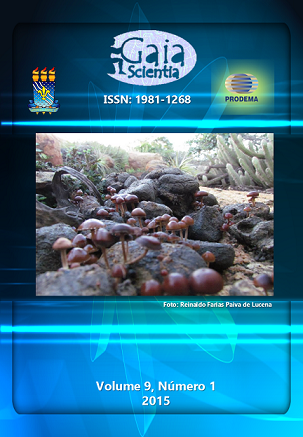The use of drawings as tools for investigating students’ prior conceptions in Science teaching: The Amphisbaenia case in Bahia, Brazil
Palavras-chave:
Amphisbaenia, Drawing, Prior knowledge, Teaching.Resumo
This article presents students’ prior conceptions about the Amphisbaenia group by means of schematic drawings made by them. Visits to two public state schools were made, where a photograph of an amphisbaenian was presented to the students who agreed to participate in the study. They were asked about their prior knowledge on this reptile. Sheets of legal paper and colored pencils were given to students, in order to make a drawing representing their knowledge about the life of these animals. The analysis of drawings took into account the cultural representativeness expressed by them. The results showed that, for the students participating in the study, the amphisbaenians have two heads, located at opposite ends of the animal’s body. Conceptions about the group’s biology were recorded, such as aspects of external morphology, feeding behavior, and habitat. Drawings may be used as a tool to investigate students’ prior knowledge about nature. We hope that the data presented here will be useful for teachers at the schools involved in the study, as well as for those working in similar schools, in order to teach based on a cultural dialogue with science and foster the construction of scientific knowledge by students.Downloads
Não há dados estatísticos.
Downloads
Publicado
2015-04-28
Como Citar
BAPTISTA, G. C. S.; COSTA NETO, E. M.; VALVERDE, M. C. C.; GONZÁLEZ, R. S. The use of drawings as tools for investigating students’ prior conceptions in Science teaching: The Amphisbaenia case in Bahia, Brazil. Gaia Scientia, [S. l.], v. 9, n. 1, 2015. Disponível em: https://periodicos.ufpb.br/ojs/index.php/gaia/article/view/24068. Acesso em: 22 dez. 2024.
Edição
Seção
Ciências Ambientais










